Why Ocean Ramsey Isn’t Afraid Of Sharks And Why You Shouldn’t Be Either
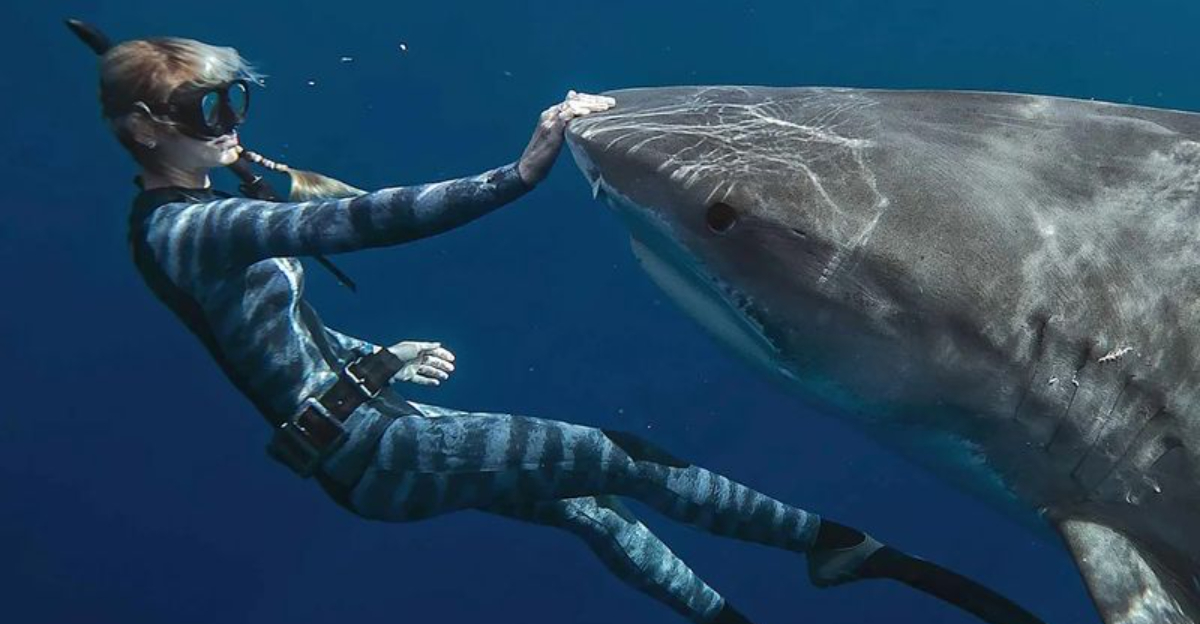
Sharks have long been portrayed as mindless killing machines in movies and media, creating a widespread fear that’s largely unfounded.
Ocean Ramsey, a marine biologist and conservationist, swims alongside these magnificent creatures daily, showing us a different reality. Her work reveals sharks as essential, intelligent animals that are far more threatened by humans than we are by them.
Understanding The Fear Of Sharks
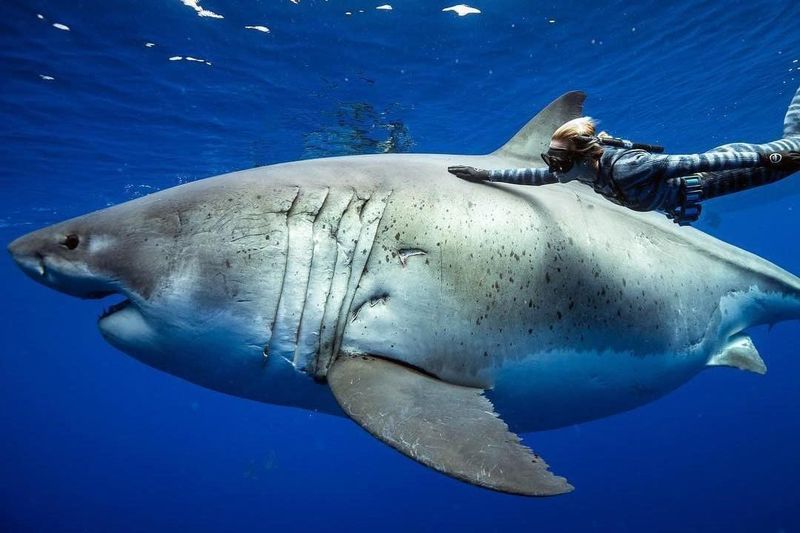
Fear of sharks stems largely from movies like “Jaws” that painted them as villains. Media coverage of rare attacks amplifies this perception, creating a phobia that’s out of proportion with reality.
Statistically, you’re more likely to be killed by a vending machine than a shark, yet our cultural conditioning runs deep.
Who Is Ocean Ramsey? A Pioneer In Shark Conservation
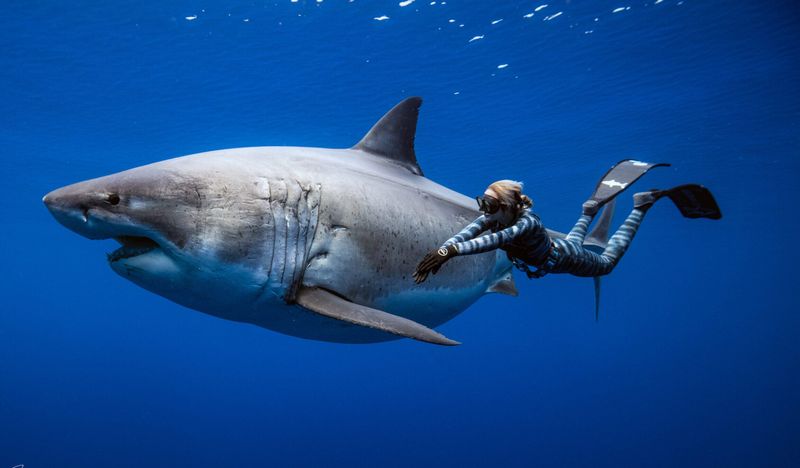
Ocean Ramsey, in her 30s, combines her background in marine biology with free-diving skills to advocate for sharks. Her viral videos swimming alongside massive great whites showcase peaceful interaction possibilities.
Through her organization One Ocean Research & Diving, she educates thousands about shark behavior and conservation needs.
Ocean Ramsey’s Unique Connection With Sharks
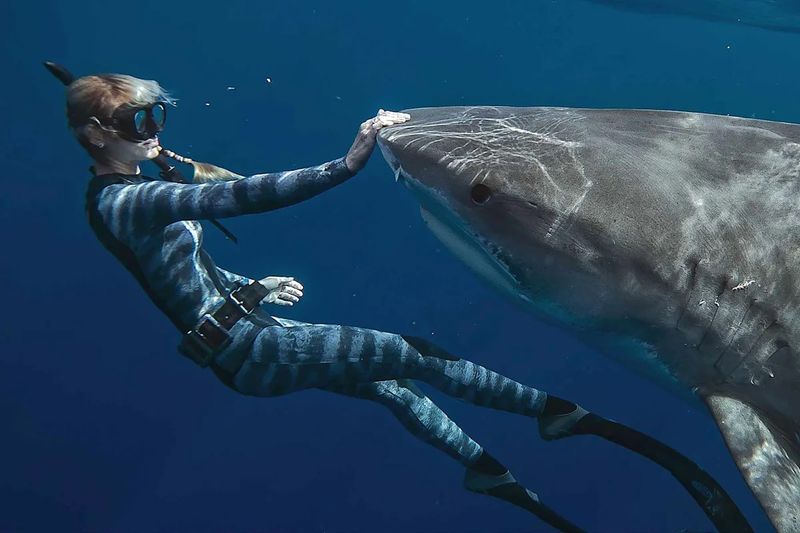
Ramsey reads shark body language like a book—noticing subtle fin positions, eye movements, and swimming patterns that signal mood. She approaches each encounter with profound respect, never forcing interaction.
Years of observation have taught her to recognize individual sharks, some of whom she’s encountered repeatedly over a decade.
Sharks Are Misunderstood
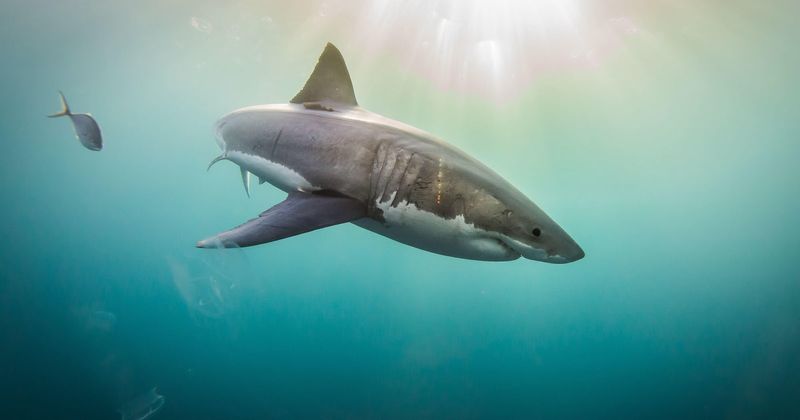
Contrary to popular belief, sharks don’t hunt humans—most bites result from mistaken identity in murky waters. Sharks typically investigate with their mouths since they lack hands.
After a single exploratory bite, sharks usually swim away, realizing humans aren’t their preferred prey. Their sophisticated senses help them distinguish between food sources.
Sharks Are Vital To Ocean Ecosystems
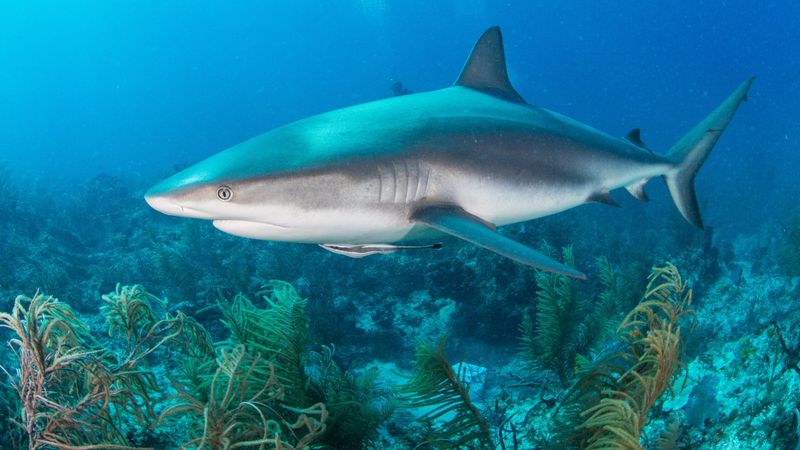
As apex predators, sharks maintain the delicate balance of marine ecosystems by controlling prey populations. Without them, mid-level predators would explode in numbers, decimating smaller fish species.
Studies of shark-depleted areas show cascading effects—coral reefs deteriorate, seagrass beds diminish, and overall biodiversity plummets dramatically.
The Truth About Shark Attacks
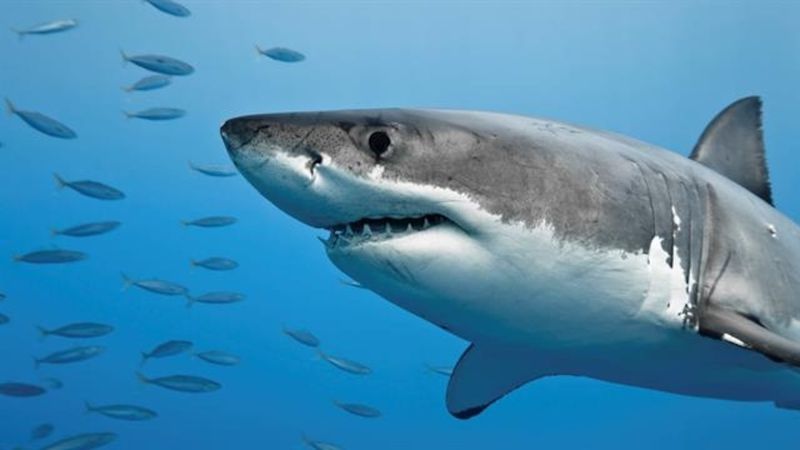
Worldwide, sharks cause about 10 human fatalities annually, while humans kill approximately 100 million sharks yearly. Coconuts falling from trees kill more people than sharks do!
Most encounters happen in specific locations during particular activities. Learning basic safety rules—avoiding murky water, not swimming at dawn/dusk—reduces already minimal risks substantially.
Ocean Ramsey’s Work With Sharks
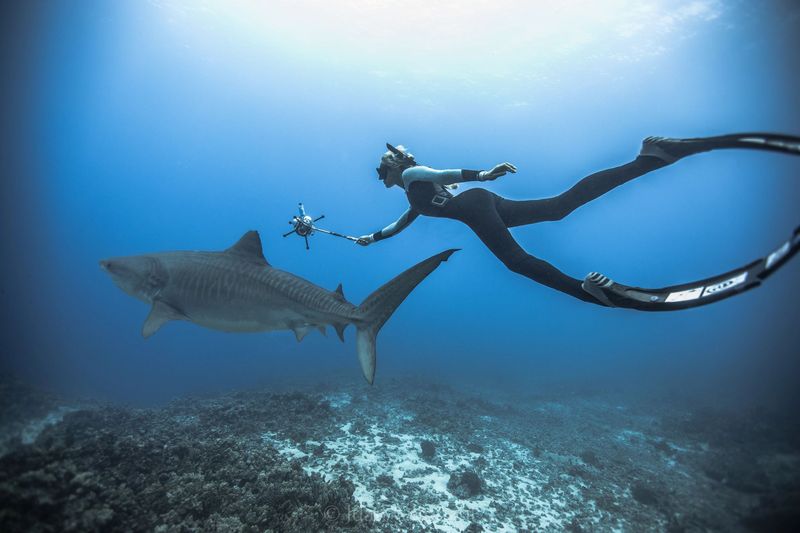
Ramsey’s approach centers on non-invasive research—observing sharks without disturbing natural behaviors. Her team documents migration patterns, feeding habits, and social interactions without harmful tagging methods.
Through stunning photography and videos, she transforms public perception. Each peaceful encounter she shares helps dismantle decades of shark villainization.
Why Sharks Aren’t Interested In Eating Humans
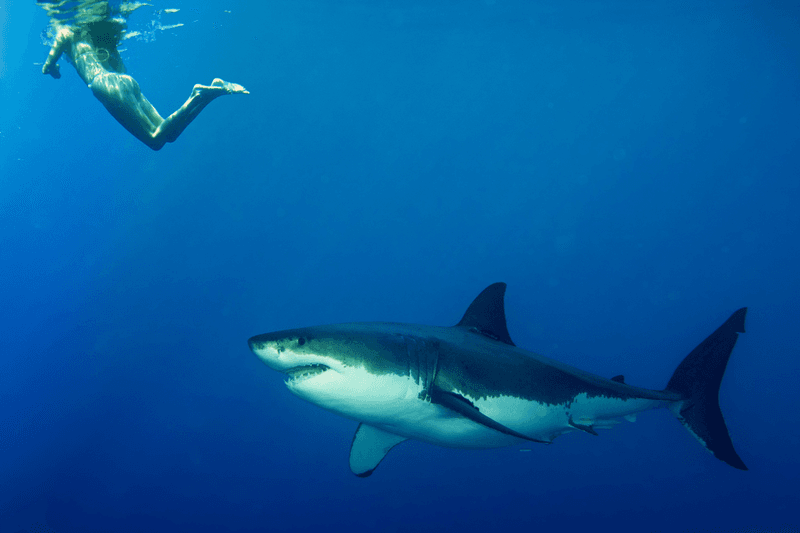
Our bony bodies provide poor nutritional value compared to sharks’ preferred fatty, blubbery prey. Humans lack the caloric density sharks need for their high-energy lifestyle.
Sharks evolved over 450 million years to hunt specific prey—not humans. When they do bite people, they typically don’t return for a second bite, suggesting we don’t taste good to them!
How Ocean Ramsey Works With Sharks To Protect Them
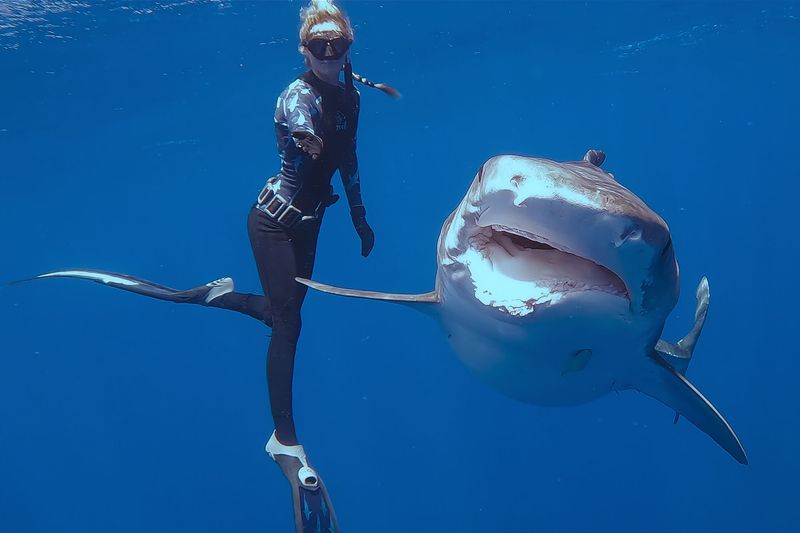
Ramsey’s conservation strategy includes citizen science programs where tourists become data collectors, documenting shark sightings worldwide. She’s pioneered protocols for respectful shark tourism that benefits local economies without exploiting the animals.
Her team’s research on shark migration has helped establish protected marine corridors in Hawaii and beyond.
Sharks Are In Danger Too
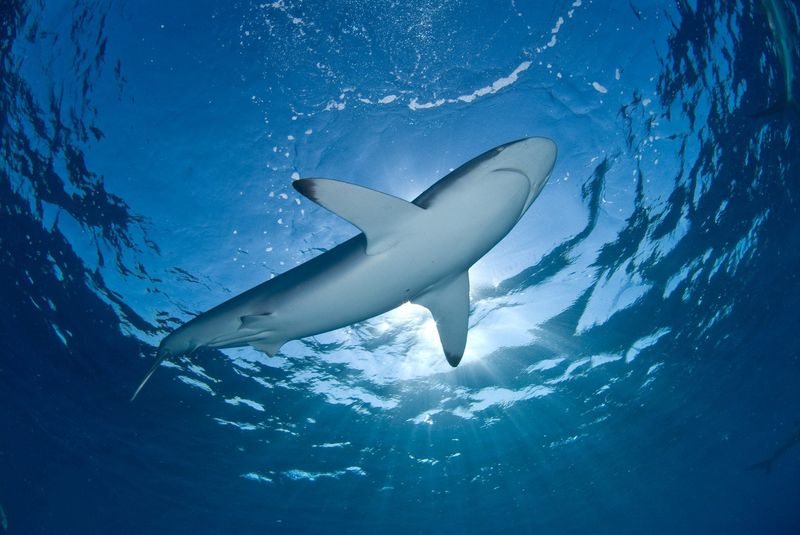
Shark populations have plummeted 71% since 1970 due to commercial fishing and the brutal practice of shark finning. Some species face a 99% decline, pushing them toward extinction.
Climate change compounds these threats by altering ocean chemistry and disrupting breeding grounds. Without urgent protection, we could lose these ancient creatures within our lifetime.
How You Can Help Protect Sharks And Overcome Fear
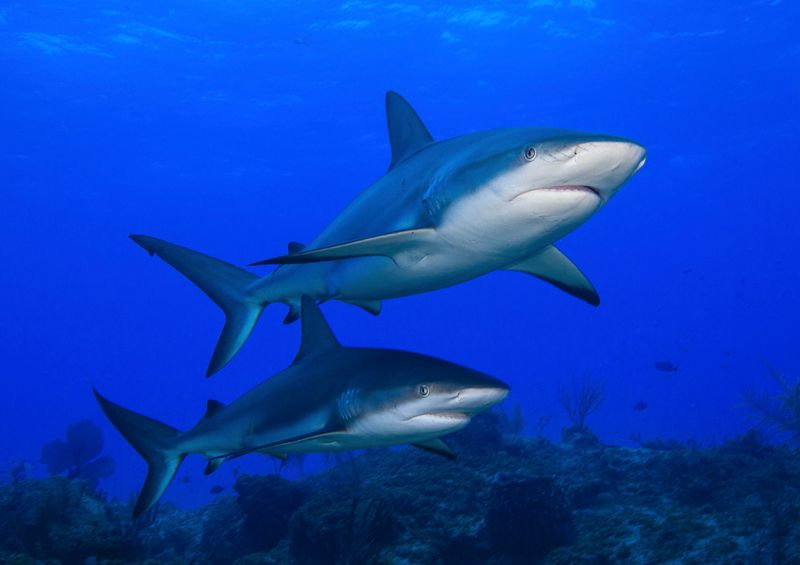
Supporting shark-friendly seafood choices makes a real difference—look for sustainable certifications and avoid shark fin products. Voting for politicians who prioritize marine protection creates lasting policy changes.
For personal growth, educational shark encounters with reputable operators can transform fear into fascination. Many former shark-phobics become passionate advocates after a single guided experience.
Shifting Perspectives On Sharks And Their Importance
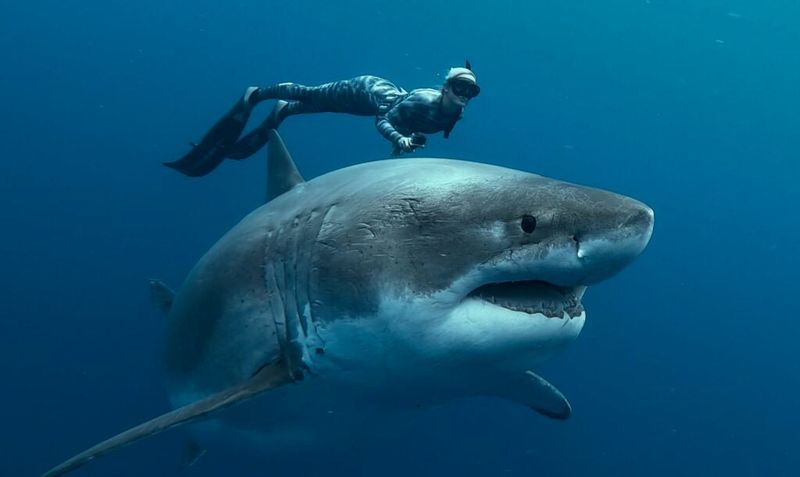
Following Ocean Ramsey’s example means seeing sharks as remarkable evolutionary success stories rather than monsters. Their sophisticated senses, intelligence, and social behaviors rival many mammals we readily admire.
By challenging our primal fears with knowledge, we can appreciate sharks as living dinosaurs that survived multiple mass extinctions—only to face their greatest threat in us.






